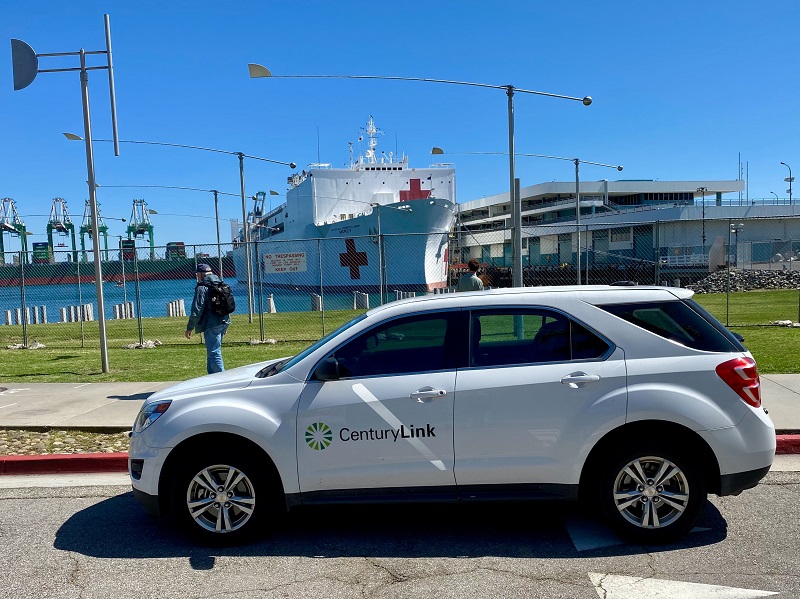Coronavirus Roundup: FCC Grants Waiver to WISPs, CenturyLink on USNS Mercy, Precursor on Techlash
The Federal Communications Commission’s Wireless Telecommunications Bureau on Friday granted temporary spectrum access to 33 wireless internet service providers serving 330 counties in 29 states to help them serve rural communities’ broadband needs during the coronavirus pandemic. The special tempor
David Jelke

The Federal Communications Commission’s Wireless Telecommunications Bureau on Friday granted temporary spectrum access to 33 wireless internet service providers serving 330 counties in 29 states to help them serve rural communities’ broadband needs during the coronavirus pandemic.
The special temporary authority granted on Friday allows these companies to use the lower 45 megahertz of spectrum in the 5.9 GigiHertz band for 60 days.
“Like everybody else, rural Americans are facing an increased need for broadband service as more and more workers, students, and families stay home during this national emergency,” said FCC Chairman
Ajit Pai.
“Fixed wireless broadband providers deliver this service for many communities, especially those hardest for other providers to reach. Giving them access to the 5.9 GHz band will help them meet their customers’ needs during these challenging times
The Wireless Internet Service Providers Association praised the move.
The pandemic’s shut-in orders have really increased demand on this nation’s networks,” said
Claude Aiken, CEO of WISPA.
“Our members are seeing over a 35 percent bump in traffic in peak hours, with 90 percent of them getting customer requests to add more speed to their plans,” noted Aiken.
CenturyLink installs internet on Navy ship serving L.A. coronavirus victims

CenturyLink donated and installed high-speed broadband aboard a military hospital ship on the Port of Los Angeles on Friday, according to a blog post by the company.
CenturyLink technicians said they pulled off this feat in less than 48 hours with two days’ notice, equipping the USNS Mercy with high speed connectivity so it can act as a serviceable healthcare center.

The USNS Mercy has 1,000 beds, 800 healthcare workers, and will be tending to patients who do not have coronavirus so that L.A. hospitals can focus on the expected influx of COVID-19-inflicted patients.
CenturyLink waived the installation fee to provide 1 Gigabit ethernet circuits for 12 months to connect the Mercy to the Naval Air Station North Island.
“We are focused on solving complex customer problems and combining that know-how with our commitment to always doing the right thing,” said
Ed Morche, CenturyLink’s President of Enterprise and Government Markets. “We are honored to be able to donate our time and services to support our nation’s military and healthcare professionals during these trying times. We choose to serve those who serve.”
Coronavirus won’t save big tech from the techlash, Cleland argues
The coronavirus won’t save big tech from looming antitrust cases, says a blog post by Precursor President Scott Cleland.
Articles have predicted that the coronavirus epidemic might buy big tech the time to prove its necessity in society, allowing it to repair its somewhat-tarnished image.
This is coming at a time when there are simultaneous probes and investigations by the Department of Justice, Federal Trade Commission, states attorneys general, and even some private actors being conducted into the allegedly anti-competitive practices of the “Big Four”: Facebook, Amazon, Apple, and Google.
Cleland argues that the so-called “Techlash” against these companies will be sustained by the deep-rooted issues driving these investigations and a bipartisan consensus that those issues are injurious. He cited a Gallup poll finding that 77 percent of Americans believe Google, Facebook, and Amazon have too much power, and 74 percent are very concerned about misinformation on the Internet.
Cleland also argued that these companies are even engaging in abuses of power during the pandemic. He cited how Amazon’s decision to temporarily only deliver essential items “competitively disadvantaged multitudes of Amazon seller competitors that heavily depend on Amazon’s dominant Marketplace, logistics, and delivery services to be fair and transparent.”









Member discussion